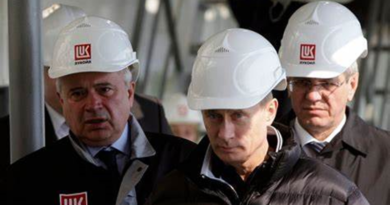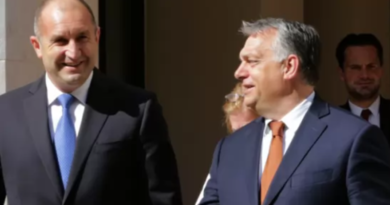Alternatives & Analyses : Gazprom agrees to reduce prices to Bulgaria – Fact check and Analysis
Gazprom has finally agreed to reduce gas prices and insert spot pricing in the formula that would lead to a claimed 40% drop in prices to Bulgargaz. The Bulgarian PM and many experts insist this is a special blessing bestowed upon us thanks to the unique negotiating skills of the Bulgargaz team and prices for Bulgaria are the lowest in the EU.
Fact-Check – Gazprom prices to Bulgargaz, even if reduced by 40 percent, would not make them the lowest in the EU or the CEE region. Nor is this true if considered for Gazprom gas sold to clients.
Although long-term supply contracts are a heavily guarded secret – gas price sales at Gazprom’s own Electronic Trading Platform – in February have averaged $ 137 per 1000 cubic meters or 11,9 Euro per MWh – well below the 13,5 Euro per MWh.
Conclusion – there is nothing exceptional with gas prices for Bulgargaz.
This wave of dramatic concessions by Gazprom has started at the beginning of the year, and the main motive is fear of market share loss.
Note that the average price for Gazprom in 2019 was $ 169 per 1000 sq m., which is 44% below Gazprom’s price for Bulgargaz in the same year.
The lowest price for natural gas now in Europe is in Spain – Euro 8.5 per MWh – and the country does not import any Russian pipe gas and depends heavily on LNG imports.
These articles analyses and comments are made possible thanks to your empathy and contributions, which are the only guarantors of independence and objectivity in our work. The Alternatives and Analysis team.
The conclusion – Gazprom’s gas hegemony is not a prerequisite for cheap gas, on the contrary. Flexibility matters more than secure supplies.
Another statement by the CEO of Bulgargaz of yesterday also deserves a closer look and should be heavily discounted for PR and propaganda. While the April 1st price for Bulgargaz might really sink to Euro 13,48 for MWh, the backdated monthly price revisions to August 5, 2019, would not feature the same 40 per cent drop for all months. On average, for the whole retroactive period – the price reduction could vary between 25 and 30 percent.
On the overall, despite this contract and the lower price, which is a positive development, that should enable the state trader to actively sell and buy gas in the region as there is no destination clause attached, Bulgargaz will continue to act at a trade office of Gazprom, rather than an independent major gas trader.
Bulgargaz’s concern that Azeri gas would not be able to compete at this new price levels is unfounded, at least until it tries to align the Socar contract with new market realities and introduce competitive price formula to the one agreed with Gazprom.
Many savants wonder why the Kremlin chose to act now on the gas contract. The answer could be traced on two planes
The first is the EU level – the threat of reopening the DG Comp Gazprom file, risking billions in fines. It makes sense to spend 70-80 million USD in order to avoid penalties worth billions.
The second is more critical and is geopolitical by nature – the end of the cordial relations between Turkey and Russia. Putin failed miserably to block the entry of alternative gas supplies to the SEE and CEE region from Turkey. Azeri gas is flowing into Turkey, so is gas from Iran and Iraq, to say nothing about LNG. Russian gas, despite three pipes (Blue and Turk Stream 1 and 2) with 48 billion cubic meters in capacity, is losing market share shrinking from 66 to under 43 percent just in two years. The future for Gazprom seems even bleaker against current tensions between Ankara and Moscow and the lack of meaningful progress in gas talks between Gazprom and Botas.
Henceforth – the Kremlin goes back to the South Stream adage seeking to block competitors in Bulgaria by offering cheap gas as an incentive and a teaser. The idea is to secure control on capacities leading to Serbia, Hungary (Turk Stream) and Romania and Ukraine (Trans-Balkan Pipeline).
Back to basics in relations between Russia and Turkey, Russia and Bulgaria.
Ilian Vassilev
Thank you for your donnations via PayPal and bank transfers to IBAN BG58UBBS80021090022940
the Alternatives and Analyses NGO.




